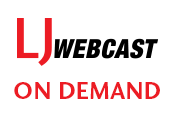In today’s world users often encounter suspect, inflammatory, or entirely incorrect information online. This presentation will examine the role that libraries can play in teaching users how to identify information and information sources that they can trust. It will include an audience-driven discussion about the ongoing fake news controversy in the U.S. and ideas for making libraries more effective information literacy educators within their unique communities.
Creating the Future: How a historic Library System used design to establish a new way forward for all libraries
Every now and again, a library project comes along that, when it ends, feels like we have accomplished something truly spectacular. The Free Library of Philadelphia’s 21st Century Libraries Initiative created an opportunity to not only bring spaces into the present, but also create public library furniture and interiors that provide a new framework for the future of all libraries. Learn more about the “Living Room” concept and how it creates a warm, inviting space that has helped bring the community back to the Free Library of Philadelphia.
In an industry where both large and smaller subscription agents enter bankruptcy, librarians and publishers are rightly concerned with the financial stability of their partners and vendors. Do you know (or understand) how your vendor is doing financially? Do you know how to approach reviewing a critical vendor or how to evaluate the risks involved?
Libraries and Research Services – Finding a Way Forward to Increase Impact, Productivity, and Collaboration
Libraries often invest considerable efforts in developing and maintaining processes and tools for handling research assets, including publications, research datasets, and creative works, while complying with a growing number of policies and mandates. What can libraries do to move forward collectively?
Are your students ready to meet the challenges of college, a career and their futures? Join us to learn how one high school in New Jersey has become a one-stop-shop to aid their students in preparing for and succeeding in high-stakes exams such as the SAT test.
How can OpenAthens simplify your life and make research easier for your users? Join us as we demonstrate experiences as an end user and the administrator. Stop waiting for IT support AND gain the insight needed to make better purchasing decisions.
Digital Rights Management (DRM) is technology used to control the use of digital content and devices after purchase. Although the intention is to prevent unauthorized redistribution, this technology creates certain restrictions and device boundaries that can impact a student’s research.
SELF-e, a turnkey self-publishing program created in partnership between BiblioBoard and Library Journal, has been enabling local writers to become local authors since 2014. Join us to hear more about how libraries, their patrons and local writers all benefit from a cycle of creating, sharing and discovering local writers.
What’s looking good for spring? Join moderator Alea Perez along with a panel of insiders who will share some of the hottest graphic novels hitting the shelves this season. Comics are forever pursuing diverse subjects and themes, so be sure to tune in to this lively and informative webcast.
How can digital magazine archives enhance and enrich academic research? Join us as EBSCO’s Clive Wright shares librarians’ and faculty members’ experiences with magazine archives from his visits to over 1,000 academic librarians across North America, Latin America and Europe.
ALREADY A SUBSCRIBER? LOG IN
We are currently offering this content for free. Sign up now to activate your personal profile, where you can save articles for future viewing


